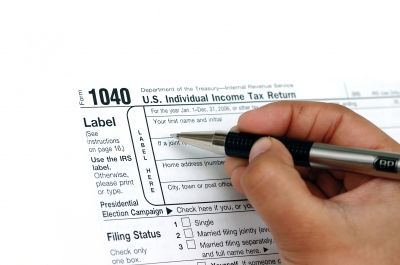Getting a letter from the IRS can be a nerve-wracking experience for most taxpayers. This can be even more unnerving when the letter says that tax information is incorrectly reported on a previous return. That's exactly what occurs when a person receives a CP-2000 notice from the Internal Revenue Service.
What is a CP 2000 Notice?
The IRS Collection Appeals Program (CAP)
Dealing with an IRS collection action such as a levy, a lien, or an IRS property seizure can be stressful and time-consuming. The process for appealing one of these actions can also be a lengthy ordeal. Because your property and assets may be at stake, it is important for you to understand your rights and responsibilities in these situations. You do have the right to appeal most IRS collection actions, but you must do so by following a very specific time frame in order to have your appeal heard.
IRS Tax Collection Appeals: Collection Due Process (CDP) Hearings
Are you facing an impending IRS collection? If so, you may feel that you have no choice but to accept the decision. However, the agency does give taxpayers the option to appeal IRS decisions relating to collections. Taxpayers do not have to fear that their appeals will be tossed aside. The agency handles appeals in a completely separate department from collections, and the two groups are forbidden by law to communicate. This precaution ensures that taxpayers receive a fair appeals hearing.
Your Guide to the Certificate of Nonattachment of Federal Tax Lien
If you've had to manage an IRS federal tax lien on your property, you may be wondering what you can do to remove any remaining obstacles once the lien has been cleared. This may be particularly important if you intend to sell the property to another individual after the tax lien has been removed. In a few instances, some taxpayers who do not owe back taxes to the IRS may receive erroneous tax lien filings against their property. If this happens, it can make it difficult for these individuals to sell their properties. To clear up this situation, taxpayers should request a certificate of nonattachment of federal tax lien from the IRS.
How to Use the Certificate of Discharge to Remove a Federal Tax Lien
Many taxpayers who are facing a federal tax lien may feel that they are out of options. While it's true that a tax lien is typically one of the most severe penalties that the IRS can levy, there are a few situations in which a taxpayer can get an IRS tax lien removed. Doing so requires obtaining a written document from the IRS called a Certificate of Discharge from a federal tax lien. If you're able to receive one of these certificates, you can have the federal tax lien removed from your property.
Penalties for Failure to File IRS Taxes
The IRS imposes two common tax penalties on taxpayers who fail to file their tax returns or fail to pay their tax liability. Depending on the circumstances, some taxpayers may actually be subject to both penalties, significantly increasing their tax bill. However, simply failing to submit a tax return does not necessarily mean that a taxpayer will have to pay a tax penalty. Much depends on whether the taxpayer owes an additional balance due to the IRS.
When the IRS issues a federal tax lien, it lays claim to the profits from a sale of property. For taxpayers who owe large amounts of money to other obligations, though, this can pose real financial problems, especially if they are unable to meet their other obligations on their own. In some cases, the IRS is willing to allow other creditors to receive profits from the property sale ahead of the government. This process is done by applying for a certificate of subordination of a tax lien. However, since the agency does not grant all of these requests, it is essential that taxpayers who apply for the certificate follow the application guidelines carefully.
Federal Tax Liens: Release vs. Withdrawal
The prospect of resolving a federal tax lien can be a frightening one for any taxpayer. Owing a large amount of money to the IRS can make it difficult for taxpayers to take care of their other responsibilities, which may prevent them for collecting funds to repay their obligation. Once a tax lien has been enforced, the IRS will only remove it after the full obligation has been paid. However, the agency can do this through either a tax lien withdrawal or a tax lien release. The end result of both processes is the same, but the manner in which the IRS removes the lien can have a significant impact on taxpayers' credit ratings.
What is the IRS Offshore Voluntary Disclosure Program?
The IRS has instituted a special program called the Offshore Voluntary Disclosure Program (OVDP). Under the terms of this arrangement, taxpayers who have been hiding assets may be able to report these activities to the agency and avoid being criminally prosecuted by the IRS. However, there are several conditions for receiving amnesty under the OVDP and any taxpayer who is considering applying should do so only after investigating the entire program and its requirements.
How to Estimate Your IRS Tax Penalties
The IRS takes a very strict stance toward taxpayers who fail to file their tax returns on time or pay their tax liability in a timely manner. Depending on the situation, a taxpayer who fails to file and pay promptly can end up owing both penalties and interest, in addition to the original amount due. Before you consider holding out on making your tax payment, it's good to find out about the potential penalties for late filing and payment. If you learn how to estimate tax penalties, you'll be able to guess how much you have to set aside to clear up your account.
SUBSCRIBE VIA EMAIL
POSTS BY TOPIC
- Tax Tips and Help (285)
- IRS Collections (121)
- IRS Audit (72)
- Tax Credits and Deductions (70)
- Tax Resolution (62)
- Business Taxes (54)
- Back Taxes (48)
- Wage Garnishment (21)
- Tax Levies (19)
- IRS Payment Plans (15)
- Tax Liens (14)
- Offer in Compromise (9)
- Unfiled Tax Returns (9)
- IRS Tax Attorneys (7)
- Asset Seizure (6)
- Tax Evasion (6)
- Criminal Tax Defense (4)
- Innocent Spouse Relief (4)
- Alimony (1)











